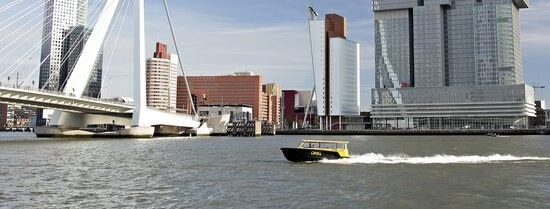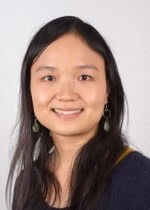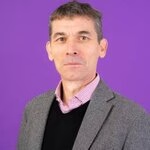The research programme Applied Economics aims to be at the European forefront. We aspire to excel in conducting world-leading impactful research, whose outcomes can also be applied by firms, consumers, and governments to make better informed decisions on the efficiency and effectiveness of their goals and policies. We develop new and fundamental fields in economics that are of high societal relevance.
Programme leaders
Research areas
Behavioural Economics
The Behavioural Economics group’s research focuses on decisions under uncertainty, over time, and behaviour regarding others in a social context. It utilises the most advanced decision theories to identify and reduce human irrationalities. Individuals’ choices are studied in terms of both theoretical research and experimental and field research.
Health Economics
The Health Economics group focuses primarily on empirical micro research in health inequality, health behaviour and global health. The Health Economics research agenda currently includes quasi-experimental and econometric analysis of gene-environment interactions as well as of health (care) behaviour more generally, including the relationship between health and labour force participation, as well as research in global health.
Organisation, Strategy and Entrepreneurship
The Organisation, Strategy and Entrepreneurship group covers micro-economic areas where strategic decision making of firms, entrepreneurs, innovators, and consumers, are studied vis-à-vis institutional, political, and cultural varying sectoral, urban, and regional contexts. Research in this group addresses crucial sorting, heterogeneity, and causality issues on these themes.
Many synergies exist between the three areas as well as between the department of Applied Economics and the other departments of Erasmus School of Economics. Longer term collaboration of the programme with Erasmus School of Health Policy and Management and Erasmus Medical Center was established in three large scale initiatives: the Smarter Choices for Better Health initiative, the Rotterdam Global Health Initiative, as well as in the Erasmus Centre for Health Economics Rotterdam. Other examples of synergies include health with urban contexts, strategic management with urban productivity premiums, behavioural research with well-being, foreign investments with the industrial organisation, and
institutions in host economies. The affiliated companies Applied Economics particularly participates with are the Institute for Housing and Urban Development Studies (IHS), Erasmus Centre for Urban, Port and Transport Economics (UPT) and Erasmus Happiness Economic Research Organisation (EHERO).
Research quality
The prioritisation of quality over quantity of research is reflected in the increasing share of top publications while maintaining a steady stream of academic publications. An increasing number of research papers have been published in top economics journals (e.g. American Economic Review, Econometrica), interdisciplinary high-level journals (e.g. The Lancet, Nature), and top field journals (e.g. Journal of Urban Economics, Journal of Health Economics, Journal of Public Economics, Management Science).
Grants
The Applied Economics focus on innovative topics and societal relevance has paid off as evidenced by its success in external grant applications in recent years. Successful grants concerned:
- REI
- Erasmus Initiative
- ERC Starting Grants (Aurelien Baillon, Niels Rietveld)
- NORFACE (Hans van Kippersluis), Netspar
- Marie Sklodowska Curie Grants (Carlos Riumallo (Individual Fellowship)
- Hans van Kippersluis (Doctoral Network
- NWO Veni Grants (Chen Li, Bastian Ravesteijn)
- NWO Vidi Grants (Jan Stoop), ESRC
- NWO COVID-19 grant (Frank van Oort)
- ZonMw (Bastian Ravesteijn).
To maintain a leading position in the field, the Applied Economics programme intends to leverage the vast experience in obtaining these grants by supporting young and talented researchers to submit innovative grant applications.
The quality of Applied Economics is not only indicated by the number of publications in top (field) journals, but also by several other metrics. The departments’ researchers have also been the recipients of prestigious awards such as the Pierson medal and membership of the Young Erasmus Academy. Placements of PhD students at other top universities are common (e.g. Bocconi, Harvard, Princeton, Cambridge, University of Michigan, Oxford).
Further, important (editorial) board positions are taken up (e.g., Management Science (Han Bleichrodt), Journal of Health Economics (Owen O’Donnell), Journal of Economic Behavior and Organization (Kirsten Rohde)).
Top researchers for seminars and research visits
To stimulate young talent, Applied Economics regularly invites top researchers for seminars and research visits. We also increasingly appoint world class scholars to longer term visiting positions. Visiting professors in the period 2015- 2021 were i.a. Drazen Prelec (MIT), Titus Galama (University Southern California), Stephanie von Hinke Kessler Scholder (University of Bristol), and John Cawley (Cornell University). Applied Economics has also hosted high-quality workshops such as the ‘Bayesian Crowd workshop’ (with researchers from MIT, Harvard, & Calltech, among others, 2017), the RGHI workshop: ‘Strategies towards Universal Health Coverage: African experiences’ (2015) and the NORFACE workshop, ‘Gene-Environment Interplay’ (2018). All researchers are affiliated with the research schools Tinbergen Institute and ERIM, and presentations in seminars at the faculty, programme and School level provide a vibrant context for exchanging ideas and knowledge.
Societal Relevance
Our research programmes are all areas of research with high societal impact and this impact is likely to increase in the coming decade. Increasing health expenditures and the changing market for health care have fuelled research in Health Economics. The realisation that people’s preferences are often unstable and that they can be nudged in the direction of socially desirable behaviour, has led to a strong increase in policy attention for behavioural economics. The Behavioural Economics group has an ongoing collaboration with the Behavioural Insight network (BIN NL) at the ministry of Economic Affairs on issues such as cyber security.
A surge in innovation and new business formation, foreign investment, economic shocks with changing institutional and cultural contexts has led to an increased interest in the economics of Organisation, Strategy and Entrepreneurship. As many investments and developments sort themselves into selective cities and regions, national and devolved policymaking is served by applied yet theoretically based research.
In the media
The Applied Economics programme’s research regularly attracts media attention. One example is the development of an interactive website on a Dutch atlas of opportunities demonstrating the relationship between circumstances in youth and later life outcomes and made accessible to a broad audience ranging from scientists over policy makers to the public at large. In collaboration with Applied Economics researchers (led by Bastian Ravesteijn) de Volkskrant published a series of articles on the theme. Also, other media (NOS Journaal, RTL Nieuws and Radio 1) covered the results, and they were included in policy reports to the G4 Dutch Cities and the Social Economic Council.
Another good example is the research on lie detection (Sophie van der Zee) which uses a hybrid of the most advanced technology, psychological theories, and behavioural models to automate lie detection in daily life. This research has received media attention such as BBC Crimewatch Roadshow (UK), Fox news (US), Gert Late Night (Belgium), Kennis van Nu, Klaas Kan Alles, NOS op 3, Eenvandaag, Meldpunt, Editie NL. It has also led to a BBC Horizon documentary.
Policy advice
Applied Economics research increasingly contribute to policy advice. Examples are the Brexit advice, COVID-19 advice for regional and national governments to mitigate the expected impacts of corona measures, advice on fostering economic development in the city and region of Rotterdam, prioritizing housing, and economic planning initiatives in the province of Zuid-Holland, and assessing possible employment and skills impacts of circular economy initiatives.
The relevance of this research is confirmed by the publication of professional articles and research reports that are distributed widely. Researchers participate in panels organised by the city of Rotterdam, Dutch regions, industry organisations, and the European Commission, and public debates and local workshops.
Much applied research takes place with the Erasmus University Rotterdam Holding companies and through advisory positions in the city of Rotterdam. As a result of this interaction, our programme has embarked on research on contemporary themes and has gained access to new and unique data sources.
New research cooperations
Since 2016, new research cooperations were launched between Applied Economics, Technical University Delft and Leiden University (LDE Centre for Sustainability), and between Erasmus University and Delft Universities (Convergence strategies: Smarter Choices for Better Health; Resilient Delta). Particularly worth mentioning is teaching in the post-initial master like the Master City Developer (with Erasmus UPT), where real-time case-studies are provided by alumni of the master that work in the field of urban development (private and public). These case studies then become field labs in participatory research.



